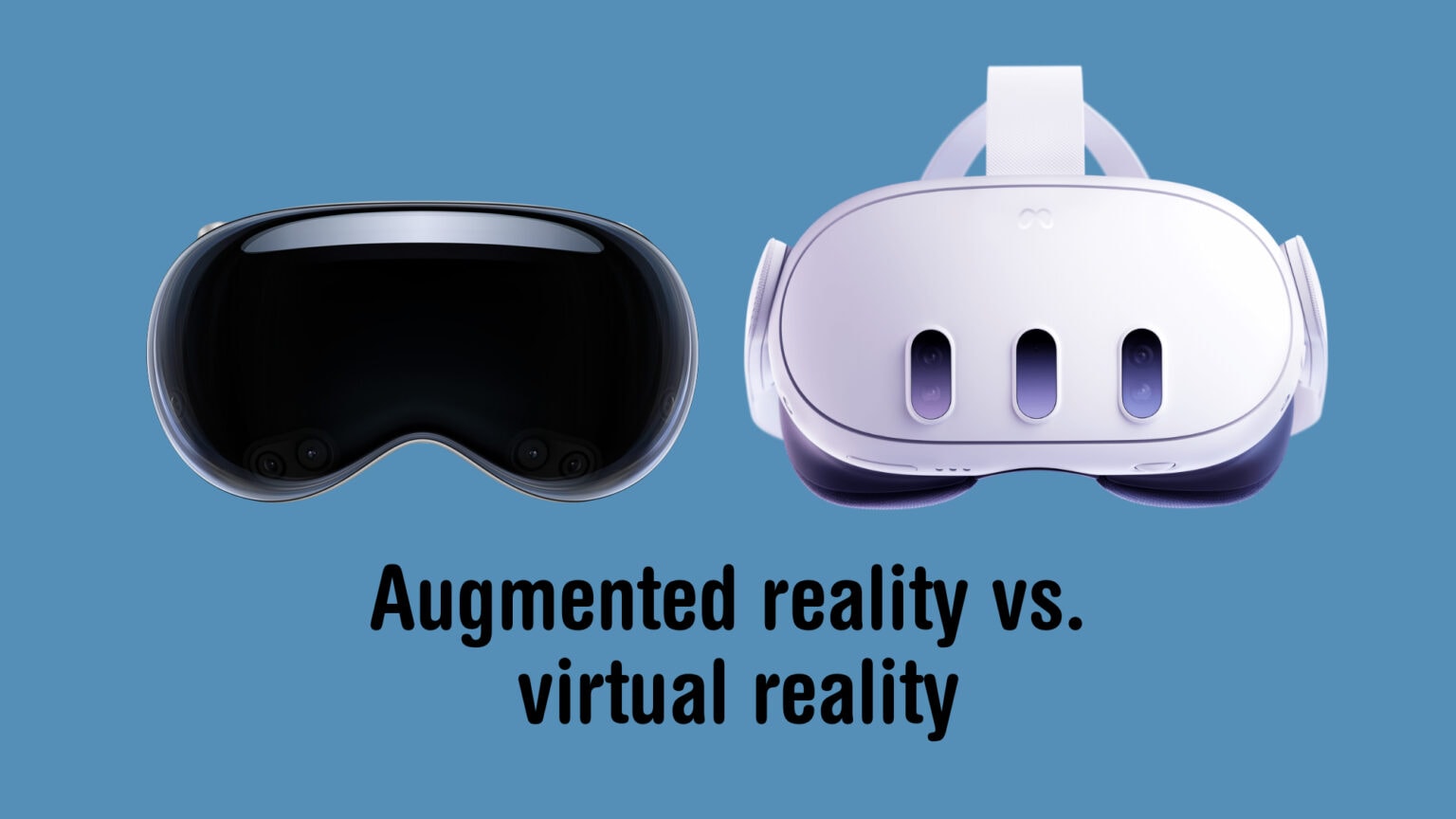Anyone criticizing Apple Vision Pro as a Meta Quest at seven times the price misses the profound difference between the two headsets. Apple made an augmented reality device, while Meta focused on virtual reality.
And the basic distinction between the two is that AR is the future of computing while VR will always be much more limited.
Both Apple and Meta seem to realize this, which is why their devices support AR and VR. The difference comes down to which one the rivals focus on, and that’s where Apple has the advantage.
Why augmented reality has so much potential
To understand the difference in focus between Vision Pro and Meta Quest, you have to know what augmented reality and virtual reality are. AR overlays computer-generated images or text onto the real world. It’s real life, but better. It’s different from virtual reality, which completely replaces the real world with a computer-generated alternative.
With AR, you’re in your office working with multiple applications on large virtual screens that are projected in front of you. Or perhaps you’re meeting with an old friend who’s been digitally added to your living room. For more possibilities, read my article on why Vision Pro gives a first look at computers of 2034.
With VR, you’re deeply immersed in the game you’re playing, to the point where it’s seemingly all around you. Or you’re watching a movie on a giant screen.
If the differences between the two seen seem somewhat narrow, that’s because you can think of virtual reality as taking one of the windows created by augmented reality and expanding it until it’s all you can see. In other words, VR is a special case of AR.
And user preference leans heavily towards AR. While there are times one wants to be completely focused on a game or a movie, the rest of the time a VR headset feels extremely isolating. With AR, the computer screens are around you, and so are your normal surroundings, including your friends or co-workers.
Vision Pro vs. Meta Quest: A profound difference in focus

Photo: Ed Hardy/Cult of Mac
Comparisons between Vision Pro and Meta Quest are understandable because at first glance the devices seem quite similar. The difference is, as noted, the focus. The emphasis the headsets put on either AR or VR is the defining distinction.
Apple created a headset designed from the beginning for augmented reality. It can do VR games and movies, too, but that’s not its focus. It’s a multipurpose computer for home or office that uses AR instead of a traditional screen.
In contrast, recent Meta headsets are VR devices with AR capabilities tacked on. The original Quest came out in 2019. And the third-gen model — the first with significant AR support — only arrived a few months ago.
Facebook changed its name to Meta because of its intent to create the metaverse: a VR world. That doesn’t leave any doubt about the focus of Quest devices.
It’s the difference in focus on AR or VR that’s going to be critical for the long-term success — or failure — of each headset.
Predicting the future by looking at the past
AR and VR are still relatively new technologies. A way to predict their future is to look back into the history of computers.
In the 1970s and 1980s, one could buy a word processor: a hardware device with a keyboard, usually a screen, and built-in printer focused on a single task. Alternatively, one could buy a multi-use computer, including the early Macintosh, and do word processing on it.
By the 1980s, the word processor became the much, much more affordable option. Meanwhile, those early desktop computers still seemed kind of clumsy. The single-focus devices sold quite well.
Theoretically, the makers of word processors could have kept adding functions to the devices, like a spreadsheet application, and could have morphed into the computers we use today – but that’s not what happened. Instead, those single-use devices became a historical footnote.
I hope the analogy is obvious: Vision Pro is the original Macintosh, while Quest headsets are like those word-processing devices. And if history repeats itself, the VR-focused headsets will be forgotten, while AR-focused ones will grow to become the standard computers of the future.
It’s possible that Meta will realize the metaverse is a distraction and refocus Quest on AR, not just tack on the feature. But the company needs to do so soon, as the Android-based operating system it’s using now is way behind Apple’s visionOS.
Vision Pro vs. Meta Quest: Today and tomorrow
Some people will likely disagree with me when I say that Meta Quest is more isolating, considering that some critics complain that Vision Pro is also isolating. Even some fans refer to being “inside” the device.
This is a result of the product being essentially a prototype that, unfortunately, blocks the user’s peripheral vision. Future Vision versions will solve this problem, to the point where the AR headset interferes with peripheral vision no more than a regular pair of glasses does.
But this raises an important point. Although both Apple’s Vision platform and visionOS have enormous potential, it’ll be years before that potential is fully realized. That makes the $3,500 Vision Pro a tough sell today. In the meantime, the Meta Quest 3 is a fine platform for playing VR games and costs only $500.
But 10 years from now, I have no doubt the future Apple Vision AR glasses will be in mainstream use. I’m not nearly so confident that Meta’s Quest line will even still be on the market.


